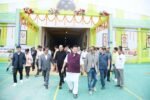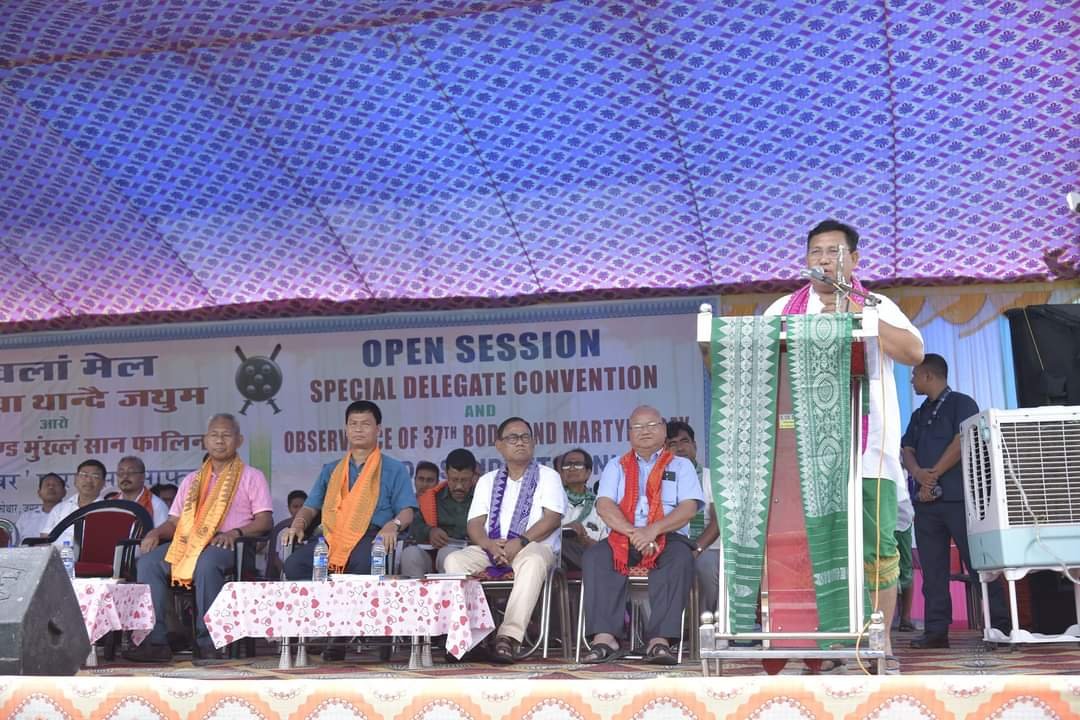HT Correspondent
KOKRAJHAR, June 16: In a bid to address growing public concerns over the proposed Adani Thermal Power Project at Bashbari in Parbatjhora subdivision of Kokrajhar district, a high-level joint meeting was held on Monday at the BTC Secretariat, Bodofa Nwgwr, under the chairmanship of Bodoland Territorial Region (BTR) Chief Executive Member (CEM) Pramod Boro.
The meeting brought together officials of the BTR government, the District Commissioner, senior police officials, circle officers, and representatives from the BJP and All Bodo Students’ Union (ABSU). The ABSU delegation was led by president Dipen Boro and general secretary Khanindra Basumatary.
At the heart of the discussion was the BTR government’s decision to allot 3,400 bighas of land to APDCL, which would then lease it to the Adani Group for setting up a thermal power plant. The proposed project site lies in an area inhabited by Boro, Garo, and Rabha tribal communities, triggering widespread opposition and fear among locals over potential displacement and loss of agricultural land.
Recent tensions in the area, including scuffles between villagers and police during a boundary demarcation drive, have raised alarms, with opposition parties intensifying their campaigns against the land allotment.
Speaking to the media following the meeting, CEM Pramod Boro assured that no agricultural, revenue, or private land would be taken from villagers and that no forced eviction would occur. He said, “Once the Rs 18,000 crore thermal power plant becomes operational, it is expected to directly or indirectly benefit 8,000 to 10,000 local youths through employment and allied opportunities.”
He stressed that the project would be implemented peacefully and transparently, ensuring that the rights and properties of local residents are safeguarded.
ABSU President Dipen Boro confirmed that the meeting, which lasted over one and a half hours, involved detailed discussions on the emotions and concerns of the local people. He emphasized that four rounds of satellite surveys have already been conducted and clarified that:
“No paddy field or private property will be affected. The proposed project site will maintain a buffer distance of 200 to 1,500 metres from the nearest villages.”
He added that the Adani Group and APDCL have assured the use of advanced technology to minimize environmental impact and pollution, and a Memorandum of Settlement (MoS) would be signed to ensure job reservations and engagement for locals.
While many villagers remain uncertain about the project’s impact, the land issue has now become a flashpoint between the ruling UPPL and opposition parties like the BPF and Congress. Notably, BPF MLA Rabiram Narzary has supported the establishment of the plant, citing its potential to generate employment, even as other BPF factions oppose the project.
Responding to concerns about industrialization targeting tribal lands, CEM Boro said industries are essential for economic development, but added,”The government is fully committed to protecting tribal lands under the Assam Land and Revenue Regulation Act, 1886 (Amended 1948).”
Meanwhile, ABSU maintained that it would not compromise on job guarantees, citing past examples where companies like NTPC and BRPL provided minimal employment to locals.
The meeting concluded with a shared resolve to balance economic development with protection of indigenous land and livelihoods, while assuring the public that their concerns will be central to all future developments.












